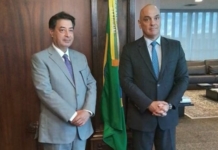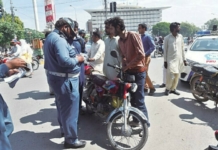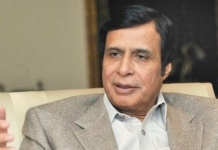Whatever the circumstances, elections for the Punjab and Khyber Pakhtunkhwa assemblies must take place in the second week of April. However, the governors of Punjab and Khyber Pakhtunkhwa, who are federal representatives, are attempting to stall the procedure in one way or another. This has to end.
The two governors recently stated in separate posts that they are unable to provide a specific date for elections due to the security and economic conditions of the nation in response to a letter the Election Commission of Pakistan wrote to them regarding the determination of the date of the elections in the respective provinces. They recommended that the ECP choose the dates after consulting all relevant parties. Haji Ghulam Ali, the governor of Khyber Pakhtunkhwa, recommended that the ECP speak with political parties and law enforcement organisations before declaring poll dates. On the chief minister’s recommendation, the Khyber Pakhtunkhwa signed the summary of the dissolution of the assembly, obliging him to legally hold the election within 90 days. He emphasised the worrying state of law and order in the province in response to the ECP secretary’s letter of January 29 and claimed that terrorist attacks have been occurring frequently for some days, necessitating a rethink of elections. The governor of Punjab, Balighur Rehman, informed the secretary, the speaker of the Punjab Assembly, and the former parliamentary leader of the Tehreek-e-Insaf, Sardar Usman Buzdar, that Clause 3 of Article 105 of the Constitution does not apply in this case because the Punjab Assembly was not dissolved on the governor’s order but rather after 48 hours of the chief minister’s advice. Instead, the 2017 Election Commission Act and the pertinent provisions of Article 224 and 218 are now in play when it comes to the electoral process. The governor further highlighted that the Election Commission should meet with relevant parties and take additional necessary action in accordance with the constitution while keeping in mind the country’s current economic and security condition. The governor stated the same points in a letter to the ECP. The Election Act 217 and the Constitution both expressly name two parties to choose the election date. While it is unambiguously stated in Article 57(1) of the Election Act 2017 that the president will decide the date and decision of the general elections in consultation with the ECP, Article (3) 105 of the Constitution makes it clear that the governor shall fix the date of Assembly elections within 90 days after the dissolution of the Assembly.
The president kept announcing the date of the general elections earlier because the elections for the National and Provincial parliament had previously taken place on the same day. This kind of circumstance has never occurred before in the political history of the nation. We have the Pakistan constitution and relevant legislation, which should clear up any doubt in specific areas. All decisions must be made within the constraints of the constitution and applicable legislation. The constitution and the legislation should be used as a guide to resolve the challenging situation facing the coalition government.
The Lahore High Court has been consulted over the issue of election dates by the Pakistan Tehreek-i-Insaf. However, given that the matter is still pending, it is imperative that the election process not be halted for any reason. Administrators under martial law, like Ziaul Haq, who initially promised and ultimately broke their promise to hold elections in 90 days, have had their terms of office extend in the country. It is hoped that the new Ziaul Haq won’t appear dressed as a democratic leader.







